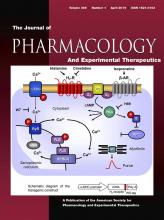Abstract
Icariin (ICA), a major flavonoid extracted from the Chinese tonic herb Epimedium, exerts beneficial effects in a variety of age-dependent diseases, such as Alzheimer’s disease (AD). However, the antiaging mechanisms remain unclear. The senescence-accelerated mouse-prone 8 (SAMP8) model has been used to study age-related neurodegenerative changes associated with aging and the pathogenesis of AD. Hence, the current study was designed to examine the effect of ICA on age-related cognitive decline in SAMP8 mice and explore the role of autophagy in the ICA-mediated neuroprotection. SAMP8 mice were administered with ICA starting at 5 months of age, and the treatment lasted for 3 consecutive months. Morris water maze was used to evaluate cognitive function. The senescence-associated β-galactosidase staining was used to determine the number of senescence cells. The neuronal morphologic changes were examined via Nissl staining. The hippocampal neuronal ultrastructure was examined by transmission electron microscopy. The expression of autophagy protein was examined by Western blot. ICA-treated SAMP8 mice exhibited a robust improvement in spatial learning and memory function. Meanwhile, ICA reduced the number of senescence cells in the brains of SAMP8 mice, inhibited neuronal loss, and reversed neuronal structural changes in the hippocampi of SAMP8 mice. Moreover, ICA treatment also decreased the formation of autophagosomes in the hippocampus of SAMP8 mice, and reduced the expression of autophagy-related proteins LC3-II and p62. These results demonstrate that ICA possesses the ability to delay brain aging in SAMP8 mice, and the mechanisms are possibly mediated through the regulation of autophagy.
Footnotes
- Received August 30, 2018.
- Accepted February 6, 2019.
↵1 F.-J.C. and B.L. contributed equally to this work.
This work was supported by the National Natural Science Foundation of China [Grants 81773739 and 81160400]; Science and Technology Innovation Talent Team of Guizhou Province [Grant CJ-926]; Shijingshan’s Tutor Studio of Pharmacology [GZS 2016(07)]; and a Construction of First-class Discipline project [GZS-2017(7)].
- Copyright © 2019 by The Author(s)
This is an open access article distributed under the CC BY-NC Attribution 4.0 International license.






